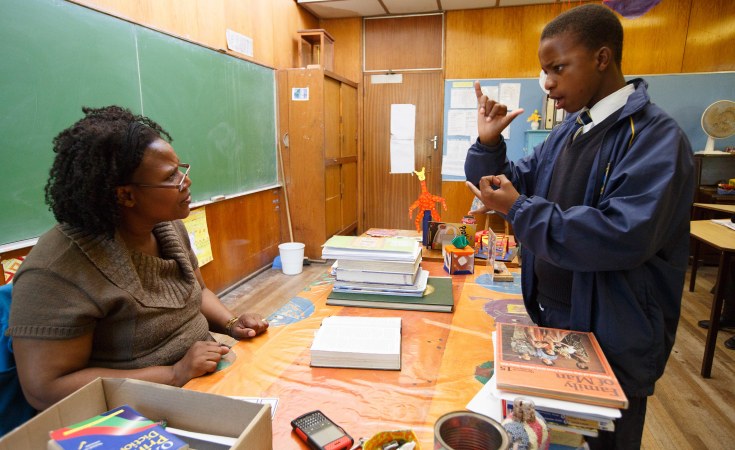Making Sign Language the 12th Official Language of South Africa, Government Aims to Advance the Rights of Citizens Living With Disabilities By Ensuring That Their Rights to Substantive Equality, Dignity and Social Inclusion Are Recognised.
Addressing the signing ceremony of the South African Sign Language Bill, President Cyril Ramaphosa said it also affirms the humanity of people who communicate with sign language.
"Having sign language recognised as an official language will address access to education, economic and other social opportunities as well as public participation. People with hearing impairments will be able to also access more services, public information and a host of other opportunities," the President said on Wednesday at the Union Buildings.
The signing of the Bill into law follows an intensive and extensive public consultation process. A substantial number of submissions were made and considered carefully to ensure that all issues were appropriately ventilated.
Parliament voted for the Constitution Eighteenth Amendment Bill that amends Section 6 (1) of the Constitution of the Republic of South Africa on 2 May 2023.
"Our Constitution enjoins on the state to take practical and positive measures to elevate the status and advance the use of the indigenous languages of the South African people. It further notes that all official languages must enjoy parity of esteem and must be treated equitably.
"We are also giving effect to the provision of the Bill of Rights that prohibits unfair discrimination on grounds such as disability, culture, race and gender. South African Sign Language has served as an essential communication tool for our citizens living with disabilities, and this step will further empower the community," the President said.
He acknowledged that the official recognition is just the beginning, as much more work still needs to be done to support the language.
"It has to be standardised to collapse various geographical dialects into one standard official version which is the remit of the Pan South African Language Board. The fact that the first comprehensive electronic sign language dictionary has already been developed demonstrates the enthusiasm to develop this language.
"The Pan South African Language Board (PanSALB) has already convened its first workshop on lexical and grammatical standardisation and the recommendations of the report produced are currently being enacted. The next standardisation workshop will convene in the last quarter of this financial year and will again include all relevant stakeholders," the President said.
He said it was reassuring that even prior to the signing ceremony, processes to institutionalise sign language had already begun.
The Department of Basic Education already provides teaching and learning for deaf learners.
"Educators in schools are regularly undergoing training on sign language and we have learners who have completed matric using sign language. Specialised schools for the deaf have to be increased in the country, factoring in geographic spread and need. They also have to be provided with qualified personnel.
"It is also crucial that there are sign language interpreters to enable access to services for people who cannot hear properly.
"For many years, lack of sign language interpreters at the courts, police stations, hospitals, clinics and many service centres or points has been compromising access to justice for victims of violence, including victims of gender-based violence and many other crimes," the President said.
Policies with fully resourced implementation plans are required to realise the Constitutional ideal of multilingualism.
Dr Bruno Dragone described the signing of the South African Sign Language Bill into law as a historic moment for the deaf and hard of hearing people.
"The signing of the South African Sign Language into law today is going to change deaf people's lives. It is a very emotional for me today and for those that are still struggling out there. Today is a glorious day.
"We hope our government will welcome them into the courts, into the schools and universities. Do not be afraid of communicating with deaf people," Dragone said.


